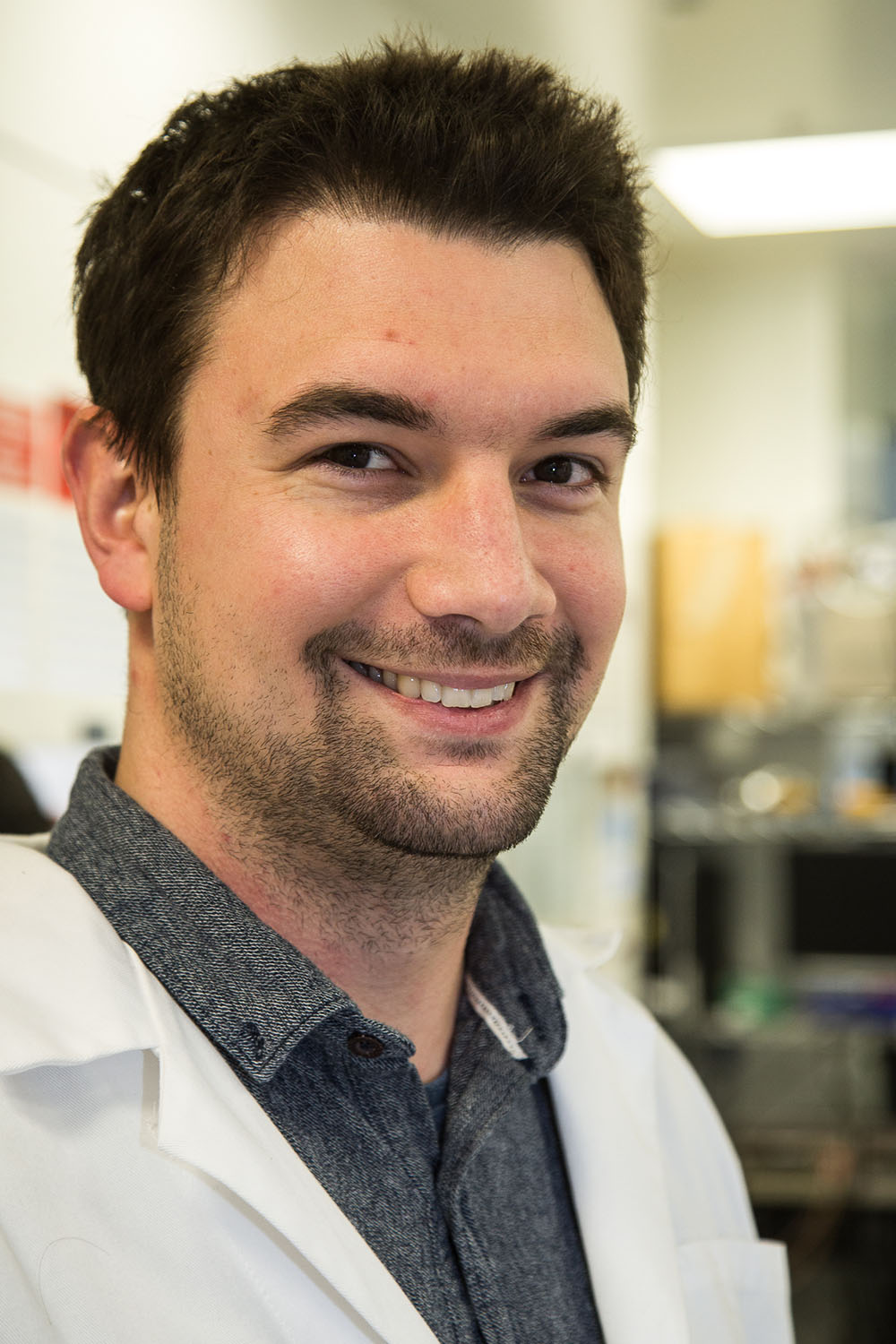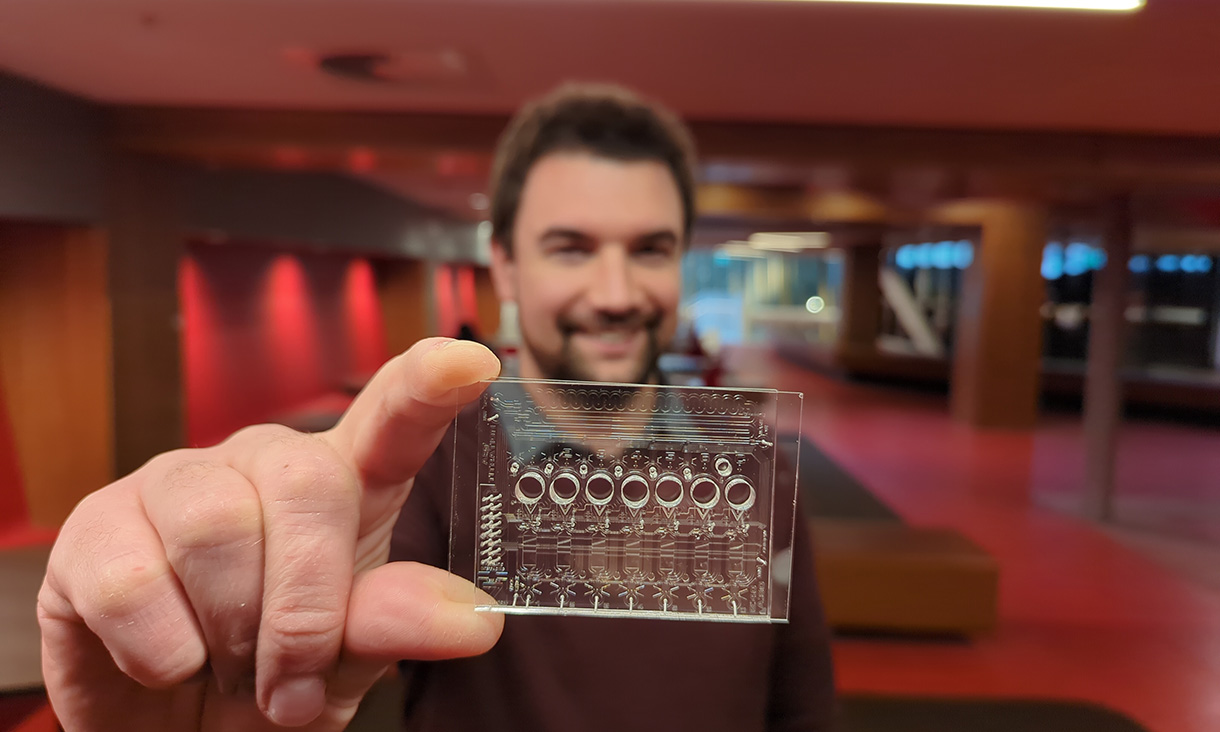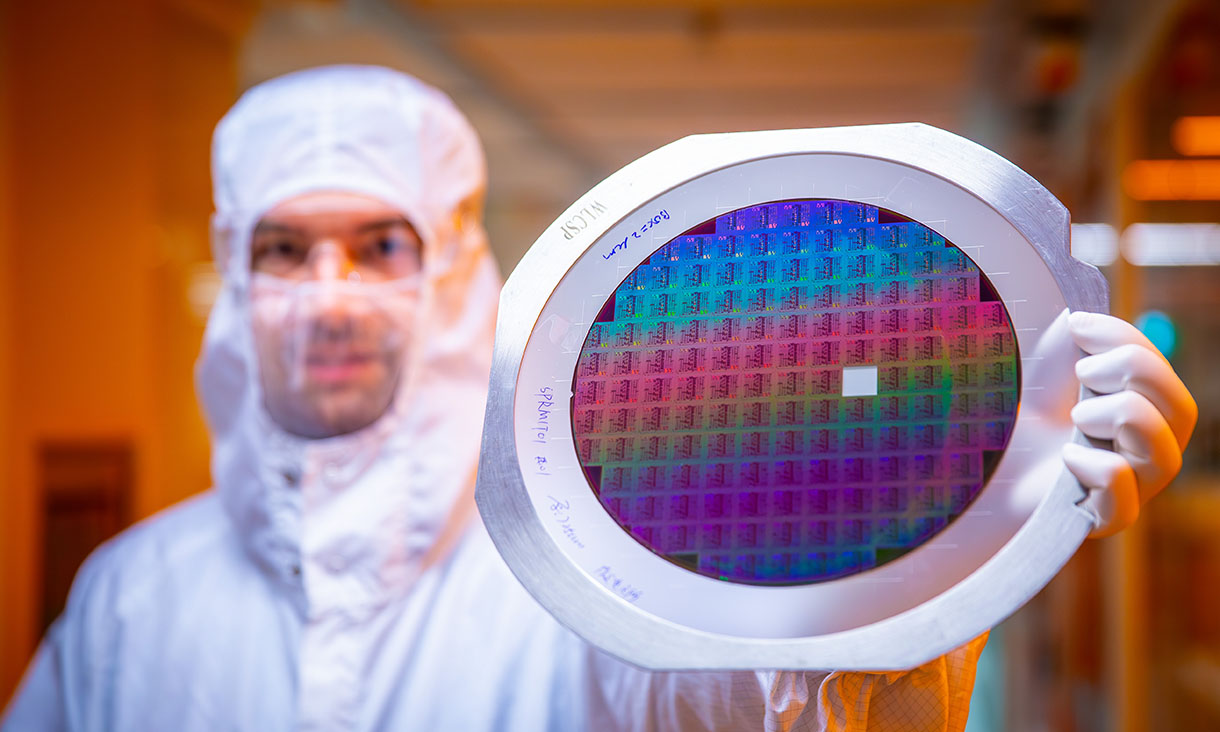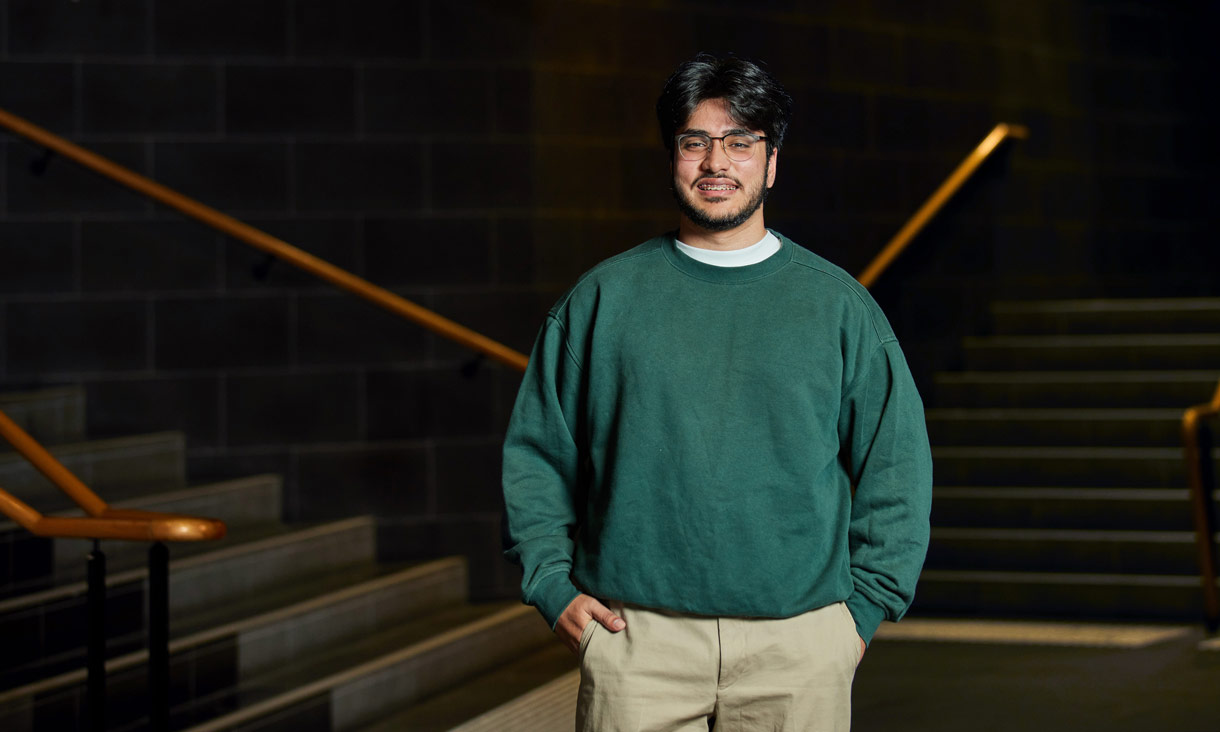Dr Crispin Szydzik likes to describe his work as “tiny plumbing”. But while the technology he works with is small, its potential is huge.
Crispin is a research fellow in RMIT’s Integrated Photonics and Applications Centre (InPAC). He works on novel sensor technology, and complex microfluidic systems that allow precise manipulation of tiny amounts of fluids such as blood or saliva.
“It's a facilitating tool,” he says. “The niche that we've found is enabling biomedical researchers to do interesting stuff that they otherwise wouldn’t be able to do – to ask questions they couldn’t before.”
That “interesting stuff” has included identifying environmental pollutants in seawater, capturing cells to test the effectiveness of treatments for ovarian cancer and malaria, growing tiny organs for improving chemotherapies, and finding new anti-clotting drugs for heart attacks and strokes.
Crispin was supported during his postgraduate studies at RMIT by the Professor Robert and Josephine Shanks Scholarship, awarded to PhD candidates in science, engineering or technology who show the highest probability of success in their field.
At the time, he was living in Ballarat with his partner and enduring a punishing commute to and from Melbourne.


“The scholarship allowed us to actually live a somewhat normal life,” he says.
“Without it I would have had to work part-time, and that would have significantly diluted what I was able to do. It's one of the only times in my life where I've had just one thing to do, and it was very successful because all of my time could be devoted to that.”
The scholarship also gave Crispin the financial security to spend six months in Barcelona, Spain, working with a team who had developed a highly sensitive light-based biosensor.
They had proven the value of the technology for detecting different biomarkers but had not yet developed it so that it could be put to practical use outside a laboratory setting.
Crispin built a tiny plumbing system on top of the sensor; processing all the fluids they needed with a programmable pump. “It would run experiments they were until then doing by hand, as a consistent automated system, which they thought was amazing,” he says.
“That was a huge opportunity that without the scholarship just wouldn’t have been practical.”
Crispin’s PhD was conferred in 2019, and he was also awarded the Professor David Beanland Prize for Best PhD Thesis in Engineering.

As he progresses in his career and sees younger graduates considering postgraduate study, he is acutely aware of the need for more support for potential PhD candidates.
“We've had people that have dropped out to go and work because they've finished their studies, and they needed money to live,” he says.
“A scholarship kind of sets you free. It really makes a difference.”

Life-changing scholarships
Give to scholarships and help create life-changing opportunities for students facing barriers to education.


